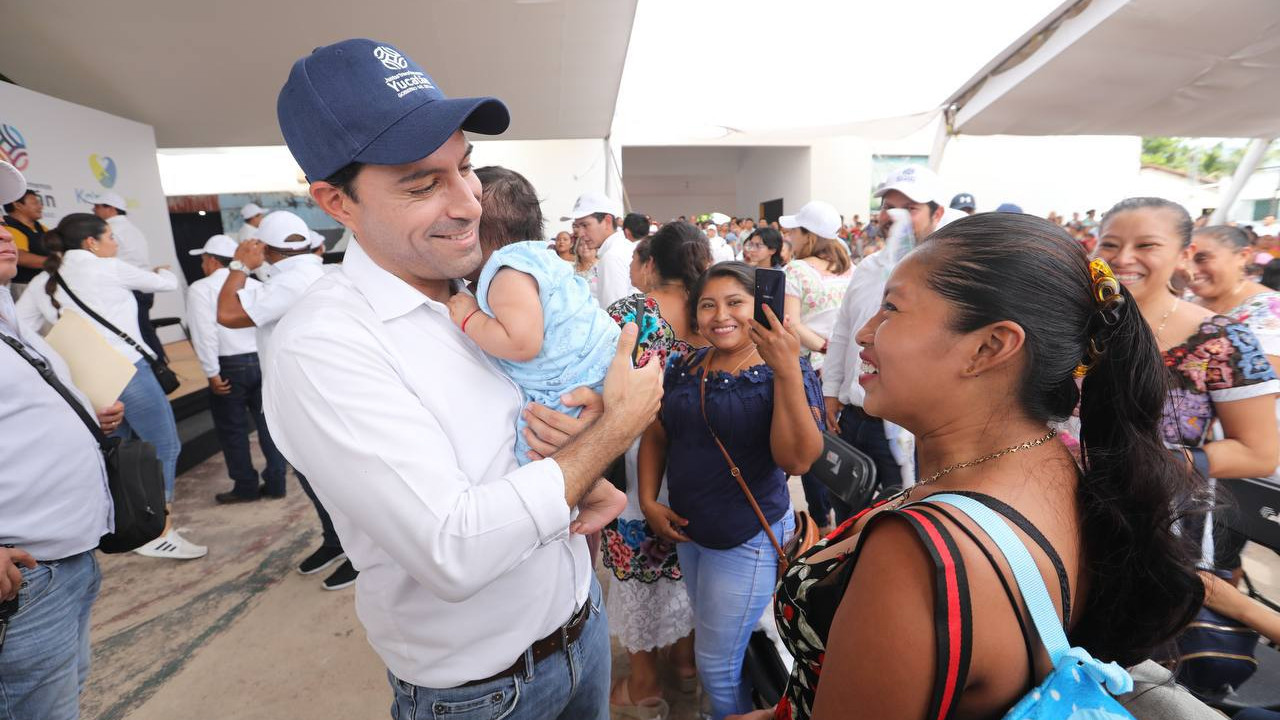Yucatecan women from indigenous communities will have the opportunity to learn skills and capabilities that will enable them to start their own businesses, grow, and achieve independence with the support of the “Ko’ox taani” Foundation and Governor Mauricio Vila Dosal. Today, the governor provided support of up to 8,000 pesos to help these women realize their productive projects.
During a work visit to the community of Popolá in Valladolid, Vila Dosal distributed resources worth 1.2 million pesos to nearly 150 women participating in this tripartite project promoted by the aforementioned organization. He also inaugurated the rehabilitation works of the local Health Center.
In the presence of the host mayor, Alfredo Fernández Arceo, and the president of the Foundation, Xavier Abreu Sierra, the governor acknowledged the support provided by the Foundation, which helps women learn to save, acquire skills and capabilities, establish backyard gardens, and access seed capital. With their efforts, these women can grow and become independent.
Together with the Secretary of Social Development (Sedesol), Roger Torres Peniche, Abreu Sierra explained that this program aims to encourage group savings and loans to support each other and rebuild social fabric. It strengthens food security through home food production and promotes livelihoods by providing seed capital to develop businesses that generate income and reduce migration. It also enhances the capacities, motivation, self-esteem, and resilience of the sector.
As a result, the lives of over 1,000 women and people with disabilities from nearly 40 indigenous communities have been transformed to overcome extreme poverty. This time, residents of Espita, Uayma, Chichimilá, and Valladolid are being supported, mainly in activities such as hammock weaving and chicken rearing.
Abreu Sierra detailed that the program starts by forming savings groups and providing financial education. They also work on home food production and facilitate knowledge exchange through “field schools” to strengthen food security.
In the next step, participants receive support in planning sustainable livelihoods, conducting market studies, receiving training and advice. Each participant designs a family income project and receives seed capital to implement it.
As part of his visit, the Governor inaugurated the rehabilitation works of the Popolá Health Center, which included improvements to the waiting room, hallway, public toilets, consulting room, medical supplies, immunization area, doctor’s office with bathroom, storage room, health promotion area, kitchen, staff toilet, and pharmacy.
TYT Newsroom



